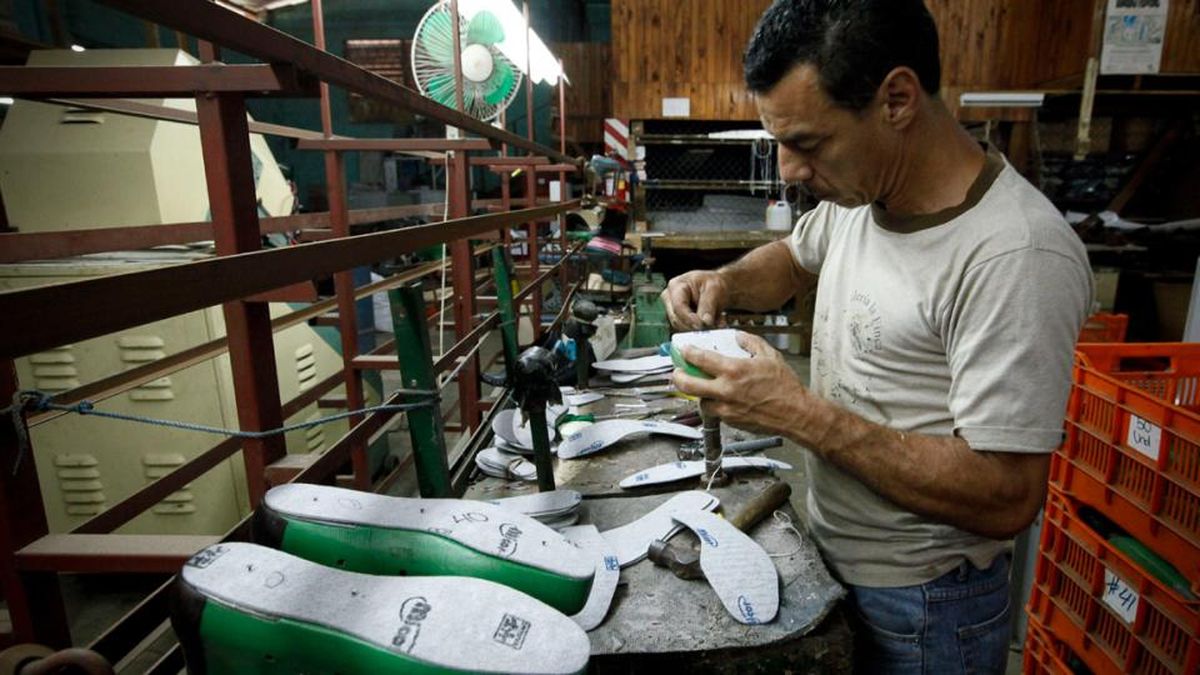He 33% of small and medium -sized industrial companies lost market at the hands of imported products During the second quarter in relation to the previous period, according to the last report of the Pyme Observatory Foundation.
The study conducted 407 companies representative of the industrial complex indicates that the amount of SMEs that perceives importing threat rose to 45%, Which represents the highest level since 2007, while 33% say they lost market, the second most important brand since the first quarter of 2017.
Looking by sectors, 51% of textile and footwear companies resigned a market; 42% of metalworking; 37% in rubber and chemicals; 31% in furniture and wood and 10% in the food and beverage sector.
Fop-importaddos
He 73.3% of companies have China the main threat, followed by Brazil, with 16.6%. Meanwhile, 45% believe that imported ones compete unfairly, 35% say that foreign products or comply with technical standards and 17% smuggling.
As a result, the report indicates that The occupation of industrial SMEs dropped 4.7% in the second quarter compared to the same period last yearwhich marked 9 quarters of fall. On average, 25% of the companies said they decreased their personnel plant.
As considered the head ofL FOP, Federico Polito Scopethe largest presence of imported in the local market is the result of “A change of facilities to import, an exchange rate that seems to be late, rises of interest rates and lack of credit.”
Poli considered the changes in the economy necessary, but indicated that “this came from one day to the other.” “The whole scenario in which you move. So you have no choice but start importing ”, He indicated when detailing the entrepreneur’s gaze.
INDEC’s official data reveal that “June imports reached a total of US $ 6,370 million, which represented an interannual increase of 35.9%. This growth is attributed to a 53.2% increase in amounts and a decrease in 11% prices.
When imports are analyzed by economic use Consumer goods is 14% almost double the last yearwhich was 8%. Pieces and accessories represent 19%; intermediate goods 33%; Fuels and lubricants 5.1% and capital goods, 19%.
From the Argentine Industrial Union (UIA) they commented that “the industry faces a rise in internal costs that has a negative impact on competitiveness of national production, together with a lower level internal demand mainly for greater competition compared to the importation of finished goods. “During the first half of the year, imports of consumer goods reached US $ 5,268 million. This marks a 32% rise against 2023, When the industrial production recorded a 10% drop In the same period, ”they detailed from the Fabrile Central.
Textile entrepreneurs on alert
Luciano Galfione, president of the Protieje Foundation He said that in the textile sector “70% of the market is imported”, although it clarifies that historically was 50%. “There was also a story at some point that said that they were not imported and it is not so,” he said.
Galfione said that in relation to 2023 “some 300 textile companies closed. “What happens is that we lower imposed on the Chinese who live 20,000 kilometers and we get them to the one who produces here, because Every time the dollar rises less than inflation that implies that the taxes that pay rise in hard currency, “he said.
The businessman explained that the textile crisis is due to the fact that “the Available entry of employees is lower “ Because, although it goes up now, it is destined to pay more for the school of children and prepaid medicine. “On the other hand, there are more imported. In relation to prices, he explained that” they go down on the margin and it is not because of the competence of the imported, but because of the need to rotate the merchandise. “That is, companies reduce to get rid of stocks.
Marcelo Fernández is president of the General Business Confederation of the Argentine Republic (CGERA) and holder of the Lynsa closure factory He points out that “by wanting to lower inflation, the Government facilitated imports, taking measures, protections and controls we had, and that made prices down.”
“Now this became dangerous because, with the decrease in consumption, the industry has had a considerable loss of market, And this led to suspensions, vacation and layoff advances, ”he explained.
Source: Ambito




